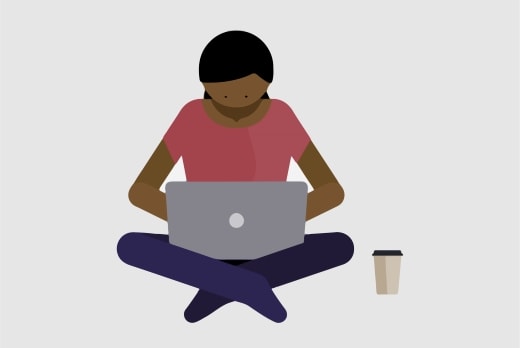Updated: May 15, 2023

Graduation marks the official transition from college to the real world and, once your celebrations end, you may still be looking for a job or preparing to begin your job search. As you build a résumé that lists your educational and career experience to show to prospective employers, don't forget to showcase your soft skills.
But what are considered soft skills? And how can they help new grads with their job search?
"Soft skills are the skills that can't really be quantified," says Daniel Shoch, former talent operations manager at a recruiting firm. "Things like empathy, etiquette, conversational skills, work ethic, and learning ability."
Jen Oleniczak Brown, an education director focused on improving leaders’ communication and public speaking skills, offers a slightly different definition. "Soft skills are people skills," Brown says. "They usually refer to the skills required to work with other people on the job."
Brown notes that the key difference between soft skills and hard skills—for example, coding or technical writing—is that hard skills can be taught and refined. "Soft skills are often innate and grown with professional development opportunities," she says.
As far as the importance of soft skills, Shoch says they're vital to working in a team environment. New grads may find it easier to integrate into the team when their professional toolbox includes interpersonal skills.
A quick bullet list is a simple way to include soft skills on a résumé. You can also highlight soft skills more subtly by weaving in related keywords as you list specific professional or academic achievements. You can draw attention to those same soft skills in your cover letter too.
With that in mind, new grads can benefit from having these soft skills.
1. Communication skills
In ranking the importance of soft skills, there are some that may be more likely to stand out to a prospective employer than others. Of the different soft skills in the workplace new grads need, Shoch says communication skills may be the most in demand.
"If one can be an articulate and effective communicator, both verbally and in writing, they're typically a stronger candidate than the rest of their cohort," he says. Even if a job doesn't require solid communication skills initially, he adds, those skills may become more valued by an employer down the line if you want to get promoted.
Increasing self-awareness about how you communicate can help with improving these soft skills. Shoch says it can be helpful to ask friends and family members for constructive criticism regarding your biggest communication struggles. Viewing their feedback through an objective lens can help you develop a plan for strengthening your weak spots.
2. Social skills
Social skills are a measure of your ability to get along well with others. This is a skill set that people typically begin developing in childhood and refine as they become adults.
One thing Brown says is central to strong social skills is empathy, or the ability to recognize and identify with the feelings and emotions of others. She says new grads can strengthen their empathy skills through active listening.
"In conversations, make a point to listen to the person talking to you," Brown says. "Focus on what they're saying and how you can contribute to the conversation, instead of driving it."
3. Creativity
The ability to be creative is typically one of the top soft skills employers desire. Creativity can lend itself to other soft skills in the workplace, such as:
- Problem-solving
- Critical thinking
- Decision-making
Being a creative thinker can demonstrate to prospective employers that you'll be able to manage tricky or difficult situations. If you need to brush up on your creativity skills, you may try improving them using one of these scientifically proven methods:
- Consciously unplugging from devices and social media for a set amount of time each day
- Changing your surroundings
- Learning about an unfamiliar topic or industry
- Keeping a log of your creative ideas
- Challenging yourself to find solutions to the big (or small) problems that need solving in your industry
4. Conflict resolution
Conflict resolution is another soft skill that's valuable in the workplace.
"Unless you're a sole proprietor, you almost always have to work with others in some capacity," Shoch says, "even if that's just managing clients or contractors."
Taking part in group or team projects or activities is an opportunity to practice conflict resolution skills, even if you're not necessarily in a professional setting. For example, volunteering or participating in an amateur sports league may mean working or playing alongside people with differing personalities and backgrounds. Those interactions can help you polish your conflict resolution skills on occasions when friction arises.
You can also work on conflict resolution techniques by practicing active listening and empathy. The more tuned-in you are to the personalities, feelings, and habits of the people around you, the easier it may be to identify potential conflicts and head them off.
5. Self-confidence
Self-confidence can help in developing other soft skills. A positive self-image can send a signal to employers that you understand your value, as a person and as a potential new hire. While you can't necessarily demonstrate self-confidence on a résumé, you can let it shine through at networking events or during a job interview.
Shoch says researching the company and taking time to learn some of the most common job interview questions can help you feel more comfortable and confident going into an interview. And once you're there, play it cool and calm.
"Don't let nerves overshadow your ability to communicate and your other soft skills," he says.
Practice makes perfect
Don't underestimate the importance of soft skills when launching a career. Building up those skills is akin to hitting the gym for a regular workout, Brown says.
"You can't practice them once or twice and just assume they'll be ready when you want to run that marathon," she says. "Train and hone soft skills as you would any other muscle."








